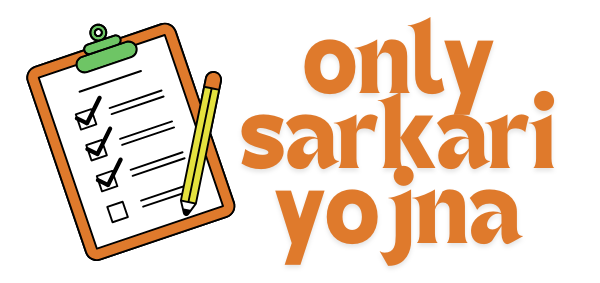Self-education serves as a formidable tool that enables individuals to take charge of their learning journey, thereby fostering personal growth and expanding their knowledge base.
This approach provides numerous advantages, including the enhancement of skills and the cultivation of a lifelong passion for learning.
When selecting appropriate books for one’s self-education journey, it is essential to consider practical factors, alongside curated recommendations across various categories.
Additionally, one can explore effective strategies to integrate self-education into their daily routine, transforming their lives incrementally through the reading of each book.
What is Self-Education and Why is it Important?

Self-education is defined as the process of actively seeking knowledge and skills beyond formal educational environments, utilizing a variety of resources such as books, online courses, and workshops.
In the context of today’s rapidly evolving world, self-education has gained paramount significance, as it enables individuals to take control of their personal development, enhance their cognitive abilities, and adapt to swiftly changing industry trends. This approach promotes lifelong learning and fosters a mindset that values curiosity and growth, making self-education an essential element for both career advancement and personal development.
By engaging in activities such as reading influential literature across diverse fields, individuals can expand their perspectives and deepen their comprehension of intricate subjects.
The use of educational technology, including online platforms and interactive applications, facilitates flexible learning that can be tailored to individual schedules and preferences.
Furthermore, participating in mentorship—whether in informal settings or through formalized programs—offers invaluable insights from seasoned professionals, allowing aspiring learners to navigate their career paths more effectively. Such experiences not only enhance an individual’s skill set but also significantly contribute to self-give the power toment, equipping them with the confidence necessary to pursue their aspirations with determination.
Benefits of Self-Education
The benefits of self-education are extensive, encompassing personal growth, enhanced knowledge, improved skills, and increased motivation to engage in lifelong learning.
By proactively taking charge of their educational journeys, individuals can customize their learning experiences to align with their distinct interests and career goals, ultimately contributing to a more fulfilling and successful life.
Furthermore, self-education promotes the development of critical thinking, creativity, and emotional intelligence, thereby equipping learners with the essential tools needed to navigate complex challenges in both personal and professional environments.
Personal Growth and Development
Personal growth and development through self-education entails a dedicated commitment to self-reflection and continuous improvement, enabling individuals to enhance their emotional intelligence and interpersonal skills. This journey of self-improvement encompasses not only the acquisition of knowledge but also a deeper understanding of oneself and the cultivation of practical wisdom applicable in everyday life.
By engaging with transformative literature and educational resources, learners can gain new perspectives that contribute significantly to their overall personal growth.
This process often necessitates the embrace of vulnerability and the confrontation of one’s own biases and fears, which can lead to profound insights. Integrating practices such as journaling or mindfulness can greatly enrich this exploration, as they encourage individuals to articulate their thoughts and feelings with clarity.
Recommended readings, such as:
- “Emotional Intelligence” by Daniel Goleman
- “The Power of Now” by Eckhart Tolle
provide invaluable insights into the complexities of emotional awareness and present-moment consciousness.
Additionally, online platforms such as Coursera or TED Talks serve as excellent resources, offering a variety of courses and discussions that promote self-awareness and interpersonal effectiveness, further advancing this enriching journey.
Increased Knowledge and Skills
Self-education plays a crucial role in the enhancement of knowledge and skills, fostering critical thinking and increasing productivity across various domains. By engaging with instructional books, online resources, and workshops, individuals can broaden their cognitive abilities and adapt to the evolving demands of their careers.
This acquired knowledge not only enhances self-confidence but also give the power tos learners to address complex problems and develop innovative solutions in their professional endeavors.
Utilizing diverse learning methodologies, such as visual aids, hands-on practice, and collaborative projects, can significantly enrich the educational experience.
For example, online platforms like MOOCs (Massive Open Online Courses) offer individuals the flexibility to learn at their own pace while cultivating critical analytical skills through thoughtful engagement with course materials.
Moreover, effective study techniques—such as the Pomodoro Technique for time management and mind mapping for organizing thoughts—further improve retention and understanding.
Engaging in self-reflection and open-minded discussions also encourages the questioning of assumptions, which is essential for critical thinkers seeking to devise effective solutions within their fields.
Factors to Consider when Choosing Books for Self-Education

Selecting appropriate books for self-education is essential for effective learning and knowledge retention, as it significantly influences an individual’s capacity to master various subjects and acquire practical skills.
Key factors to consider include aligning reading materials with personal interests, establishing clear goals and objectives, and assessing one’s learning style to improve comprehension and retention.
Through a comprehensive self-assessment process, individuals can create a tailored reading list of impactful books that align with their educational needs and aspirations.
Identifying Your Learning Style
Identifying one’s learning style is a critical component of self-education that significantly impacts the effectiveness with which new knowledge and skills are acquired. Understanding whether an individual is a visual, auditory, or kinesthetic learner enables the customization of educational resources—such as books, online courses, or seminars—to align with their unique learning preferences.
This self-awareness not only enhances the learning experience but also fosters self-directed learning, as individuals can select methodologies that resonate with their preferred styles.
Recognizing one’s learning style can lead to a more efficient allocation of time and resources, thereby minimizing frustration throughout the learning process. Numerous online quizzes and tools, such as the VARK questionnaire or the Kolb Learning Style Inventory, are available to assist individuals in identifying their preferred learning modalities.
Once learners comprehend their unique styles, they can implement targeted strategies, including:
- Creating mind maps for visual learners,
- Engaging in discussions for auditory learners,
- Utilizing hands-on activities for kinesthetic learners.
Incorporating this understanding into one’s educational approach allows for a more personalized and effective self-education journey, paving the way for continuous growth and mastery of new subjects.
Setting Goals and Objectives
Setting clear and achievable goals is essential for successful self-education, as it provides direction and motivation throughout the learning journey. By defining specific objectives, learners can effectively assess their progress and maintain focus on personal development.
This goal-setting process is often enhanced by achievement-oriented literature that offers insights into effective strategies for reaching aspirations, thereby reinforcing the significance of discipline and persistence in the pursuit of knowledge.
Establishing a roadmap not only fuels ambition but also transforms abstract concepts into concrete outcomes. For example, breaking larger goals into smaller, manageable tasks can render the learning experience less overwhelming and more rewarding.
Utilizing tools such as the SMART criteria, which emphasizes Specific, Measurable, Achievable, Relevant, and Time-bound objectives, can significantly enhance clarity and focus.
Online platforms like Coursera and Khan Academy provide structured courses that align with individual goals, offering valuable resources and community support.
Regularly reviewing and adjusting goals based on progress fosters a growth mindset, promoting continuous improvement in self-education endeavors.
Top Books for Self-Education
Identifying the foremost books for self-education is crucial for individuals aiming to improve their skills and knowledge through effective reading.
The selection of appropriate instructional books can serve as invaluable educational resources that not only inspire but also offer practical insights and strategies for personal development.
From classic works in philosophy to contemporary self-help literature, a thoughtfully curated reading list can foster transformative learning experiences and cultivate lasting success habits.
Categories and Recommendations

In the realm of self-education, books can be systematically categorized into several essential areas, including personal development, finance, psychology, and creativity, each providing distinct insights and knowledge.
Personal development literature typically emphasizes emotional intelligence and motivation, while finance-related texts offer practical guidance on financial literacy and career advancement. Engaging with these categories not only expands one’s knowledge base but also equips individuals with vital skills necessary for navigating various challenges in life.
Exploring the field of psychology can enhance one’s understanding of human behavior and improve interpersonal relationships, as these works often illuminate cognitive processes and emotional well-being.
Meanwhile, books centered on creativity foster innovative thinking and problem-solving capabilities, which are crucial in both personal and professional contexts.
By immersing themselves in these diverse subjects, readers are introduced to transformative ideas that promote critical thinking and adaptability. As individuals engage with a wide range of topics, they develop a more nuanced perspective of the world, give the power toing them to pursue their passions and goals with renewed enthusiasm.
How to Incorporate Self-Education into Your Daily Routine
Incorporating self-education into one’s daily routine is essential for fostering a continuous learning mindset and maximizing personal growth.
By allocating specific time slots for reading, completing online courses, or engaging in mentorship, individuals can effectively integrate self-education into their lives.
Furthermore, employing effective time management strategies and establishing passion projects can significantly enhance motivation, enabling the cultivation of new skills and knowledge on a daily basis.
Tips and Strategies for Effective Learning
Effective learning is a complex process that encompasses the implementation of diverse study techniques and strategies designed to maximize knowledge retention. Techniques such as spaced repetition, active recall, and self-reflection have been shown to significantly enhance the learning experience, ensuring that information is not only acquired but also retained over time.
The incorporation of discipline into one’s study habits can lead to improved productivity and a more rewarding journey in self-education.
To further enrich this process, learners are encouraged to diversify their resources and engage with multimedia tools, including podcasts, videos, and interactive quizzes. Establishing specific, achievable goals can help sustain motivation and provide a clear roadmap for progress.
Additionally, forming study groups facilitates collaboration and the exchange of ideas, which can promote a deeper understanding of the material.
Emphasizing mindfulness during study sessions enhances focus and minimizes distractions, while regular breaks can prevent burnout, thereby ensuring a balanced approach to learning.
By experimenting with these various methods, individuals can identify the combination that works best for them, ultimately transforming their educational pursuits into a profoundly enriching experience.
Frequently Asked Questions
What are some of the best books for self-education?

Some highly recommended books for self-education include “The 7 Habits of Highly Effective People” by Stephen R. Covey, “Think and Grow Rich” by Napoleon Hill, and “The Power of Now” by Eckhart Tolle.
Why should I consider reading books for self-education?
Books can provide valuable information, insights, and strategies for personal growth and development. They can also expand your knowledge and understanding on various topics and help you acquire new skills.
Are there any specific genres or types of books that are best for self-education?
It ultimately depends on your interests and goals, but some popular genres for self-education include self-help, personal development, business, and psychology.
Can I find books for self-education in different formats?
Yes, books for self-education are available in various formats such as physical books, e-books, audiobooks, and online resources. Choose the format that works best for you and your learning style.
Do I need to read a book in its entirety for it to be beneficial for self-education?
No, you can gain valuable insights and knowledge even by reading just parts of a book that are relevant to your interests and goals. It’s not necessary to read an entire book cover to cover for it to be beneficial for self-education.
Are there any other resources I can use in addition to books for self-education?
Yes, you can also utilize online courses, workshops, seminars, and podcasts to supplement your self-education journey. It’s important to find a variety of resources that work for you and your learning style.




